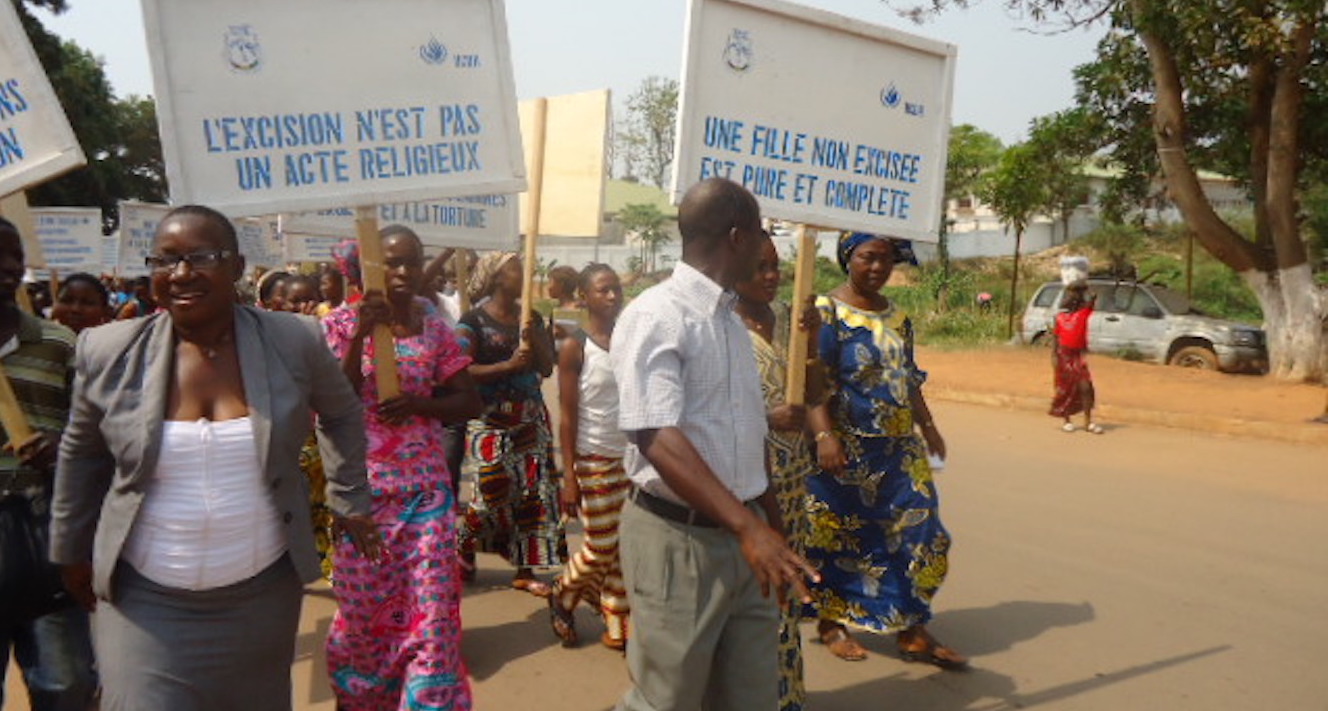Gender-based violence (GBV) remains very widespread in the Republic of Guinea. Violent acts are tolerated and cultural and religious arguments are regularly cited in their favour, or as justification. 82.2% of families from the region encourage these practices.
According the national report from the Guinean Ministry for Social Affairs and for the Advancement of Women and Children, published in 2013, the rate of rape of young girls is at 21%, marital violence at 88%, child marriage at 75% and according to socio-demographic investigations in 2012, the practice of female circumcision went from 96% in 2005 to 97.1% in 2012.
In the Guinea Forest Region, Female Genital Mutilation (FGM) is a practice that is widely supported by women themselves and, as a result of peer pressure and ignorance surrounding the harsh and cruel reality, almost every young girl undergoes circumcision. Dialogue around FGM is coded and restricted to those who practice it. The girl’s education and the preservation of cultural values are the two reasons most often cited in support of FGM.
A project emerged “Génération sans excision” (No Circumcision Generation) and led to the setting up an association called “L’Association des Filles Unies pour l’Eradication de l’Excision, AFUEE” (Association of Girls United in the Eradication of Circumcision) made up of 100 young girls.
As a victim of genital mutilation myself, I have been engaged in the fight against GBV since 2009. After reflecting deeply on the reasons why FGM continues to be practised, the association undertook the promotion of non-circumcision by non-circumcised girls, in other words, breaking with the usual approach. This involves tackling the taboo around FGM using a new technique: involving those young girls who are directly concerned. The strategy is not only to inform the girl about what actually happens in the initiation camps, but also to teach them to be proud of being uncircumcised and to join the fight against the practice.
Taking into account the concerns of the traditionally conservative members of the community, and those who practice circumcision, the association set up initiation camps that did not involve circumcision. Traditionally, in addition to practising FGM, circumcision camps were also places of education and learning of cultural values (song, pottery, weaving, thread-spinning, dance, sewing etc.). Today, these values have been lost and the camps only practice circumcision.
The strategy is to convert these circumcision camps back into learning camps (initiation camps that do not involve circumcision). This means that those women previously carrying out circumcision will become community education leaders and will be less reluctant to stop practising circumcision, whilst still preserving cultural values. The first activities carried out gained the support of those practising circumcision, with the project named “initiation sans excision” (Initiation without circumcision). Camps that are converted in this way can serve as spaces for regular exchanges between women on the problems linked to educating young girls and the development of Income-Generating Activities (IGAs) that promote the empowerment of women.

As a victim of genital mutilation myself, I have been engaged in the fight against GBV since 2009.
